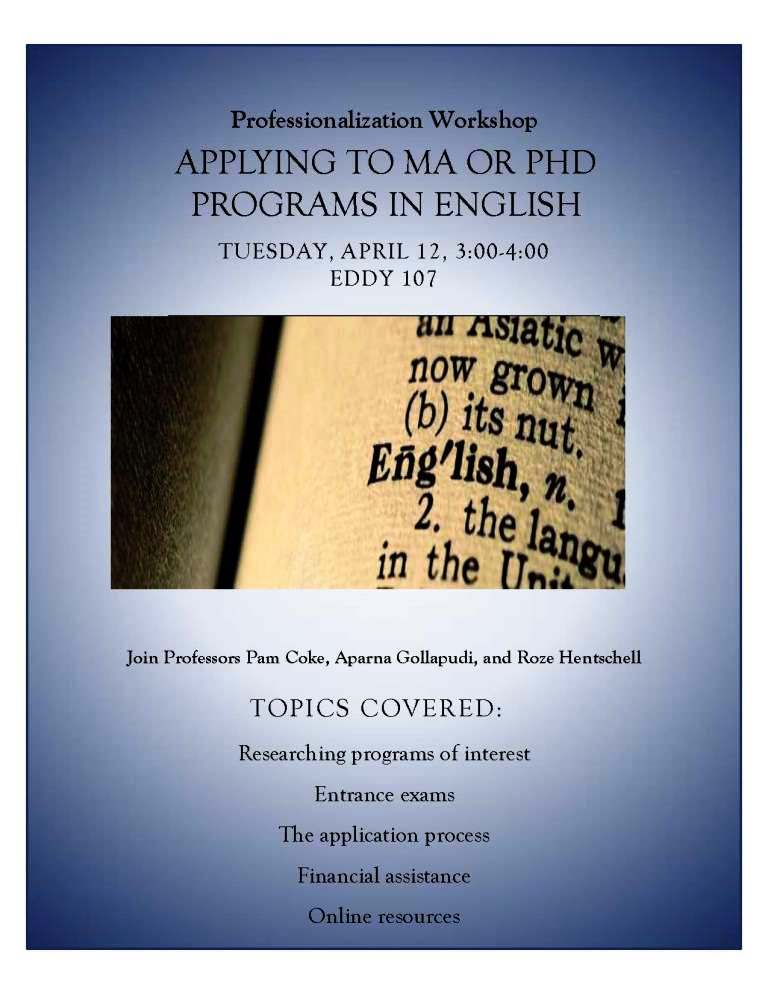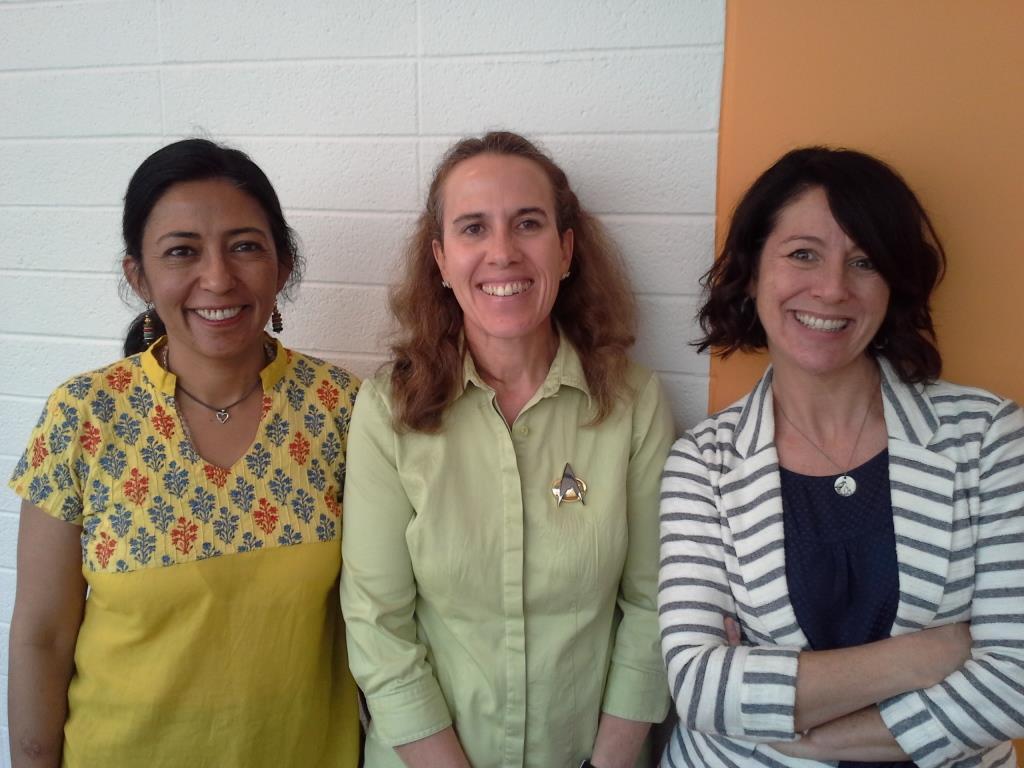~From English Department Communications Intern Beth Campbell

We rarely turn our thoughts to the future as college students. We are focused on the here and now – what assignments need to be done, what classes need to be taken, which meetings we need to go to, and how we are going to spend our Friday nights. For those of us who sat in a circle in one of Eddy’s classrooms and listened to Roze Hentschell, Pam Coke, and Aparna Gollapudi outline what it takes to get into a good graduate English program, thoughts of grad school couldn’t have been further from our minds.
I, for one, had never really considered grad school. I suppose it was always in the back of my mind, nagging at me from a distance like that crazy great aunt no one likes to admit they have. I had only ever seriously considered completing my undergraduate years, and then moving on to whatever job came into view. Considering getting a higher degree was like doggie-paddling in the shallow end of the pool and wishing I could do backflips off the diving board into the deep end like my superiors. I never really gave it any credence, but as I began to really look and what applying to a graduate program could mean, my interest and my motivation peaked.
I was not the only one. This was the general consensus of the room before the presentation began. There were about twenty of us, all undergraduate students, anxious about our lives beyond our perfectly penned four-year plans and looking for something to further our education.

Roze Hentschell, Pam Coke, and Aparna Gollapudi had compiled a packet of information and tips on applying to graduate schools. I had no idea what an extensive process this could be. They began by talking about making a list of programs to which you would wish to apply, double checking prices, GTA positions, testing requirements such as the GRE or any subject tests, and other general application requirements. From there, one looks to the application process itself. We spent a large amount of time discussing how to ask for letters of recommendation, what to provide to your recommenders, compiling writing samples, and writing a statement of purpose.
The statement of purpose I found to be particularly interesting. It needs to be professional and brief, but it also needs to showcase who you are as a student to the application committee. A truly well-crafted statement of purpose combines who you are as a person with who you wish to become and how that program will help get you there.
The presentation became a dialogue, moving through the information packet, but speckled with questions and insights. If a question arose, it was answered without a second thought. This interactive exchange made the entire prospect of applying to a graduate program much more real and tangible. Suddenly, it was not just some lofty dream tangled up in the rafters of our minds. It was a yellow brick road laid right under our feet and headed toward a world about which we barely dared to whisper. It was an actual opportunity, a chance to do what we had thought impossible. And it was empowering to hear that we could.
The hour-long presentation passed in what felt like twenty minutes. I left with my mind buzzing, ideas and inspiration twirling about my thoughts like bees. I now am not afraid to look toward my future, especially when considering a higher degree. I left feeling stronger and more driven than I have ever felt before, and I know that no matter what happens, I can do this.